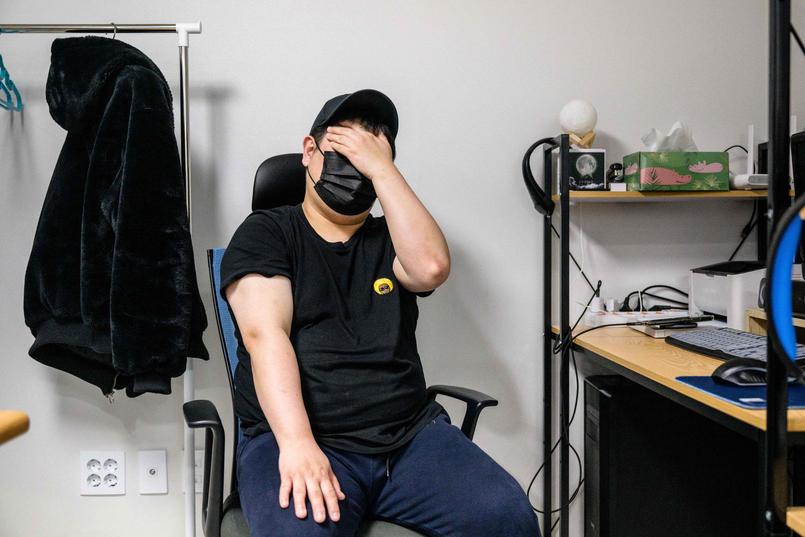For a decade, Park Hyeon-su lived in a windowless micro-apartment in Seoul working two jobs and saving every penny to buy a nice house. But his security deposit was misused by crooks and his dream collapsed. South Korea’s rental market operates under a unique system called “jeonse”, in which tenants pay large deposits – sometimes hundreds of thousands of dollars – then live rent-free for years, before getting their deposit back when they are moving.
This formula allows owners to have access to interest-free funds, and tenants to obtain free accommodation, the real estate serving as guarantee. But the system, which accounted for two-thirds of the rental market in the 1990s, is less popular today. It has been plagued by fraud: more than a billion dollars are lost each year in scams, according to the police. Park Hyeon-su remembers regularly working from 9 a.m. to midnight on small delivery jobs to save $73,000. But after he paid a deposit and moved in, his supposed landlord – who turned out to be an impostor – disappeared and he was evicted, with no way of getting his money back.
17,000 victims of fraud
“It’s not just about the money”he said but “all my twenties and thirties” which were stolen. “My dream of owning a house evaporated, I gave up on dating, let alone getting married or having a child.”explains the 37-year-old South Korean, who wanted to testify under a pseudonym to guarantee his anonymity. Like him, at least 17,000 people – 70% of them between 20 and 30 years old – have been victims of jeonse fraud in recent years. At least eight victims of scams of this type have committed suicide, according to associations.
Many tenants take out bank loans to pay the huge security deposit required, with the intention of paying them back once they have moved out and the money has been returned to them. But once defrauded, they remain indebted to their bank. South Korea’s parliament passed a law last year to help victims, with interest-free loans over 20 years. But the victims cry injustice. “Telling young people to spend the next 20 years paying back money lost to fraud is like telling them to stop living”says Ahn Sang-mi, a victim, at a recent rally in Seoul.
The other option is to go through a process similar to bankruptcy that wipes out some debts. But this hurts borrowers’ credit scores, which is particularly harmful to young people, campaigners say. The government should not “stigmatize young people” who are just beginning their adult lives, points out Jang Sun-hoon, a victim from Daejeon.
Four years ago, Choi Jee-su, 33, used all his savings and a bank loan to move into a Jeonse apartment to escape life in a cockroach-infested student room. But his apartment was sold without his knowledge and the owner vanished with his deposit, leaving him riddled with debt. To pay off his initial bank loan, Choi borrowed at high rates on his credit cards and sold his stocks, while working in restaurants and counting every penny for his meals. He spent the day preparing delicious food for customers, but “was hesitant to buy just one pack of instant noodles” for himself. “I ended up choosing the cheapest one, and crying while eating it because it tasted horrible”indicates the young man who told his story in a book entitled “The Hell of Jeonse”.
The Democratic Party, in opposition, has proposed a bill allowing the state to reimburse tenants for deposits lost to fraud. But the government rejected the proposal, citing cost concerns. Choi, who is now working on a gas ship in hopes of saving to become a pilot, is calling on the government to take action. Jeonse fraud destroys lives, he says. “The victims lose everything, their lives, their dreams and their joys which are shattered.”

